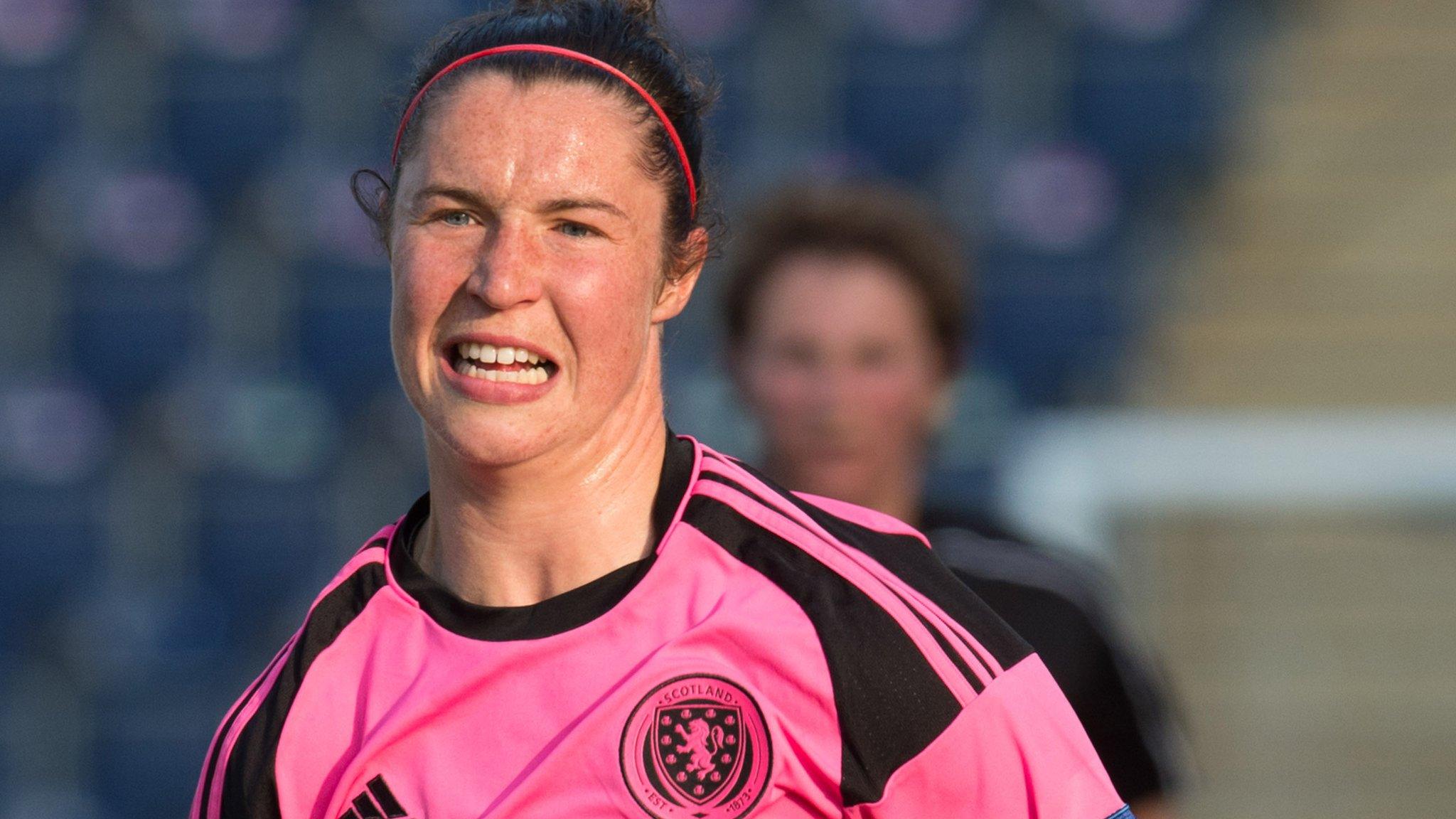Scotland Women: Four lessons Scotland's men could learn from Anna Signeul's side
- Published
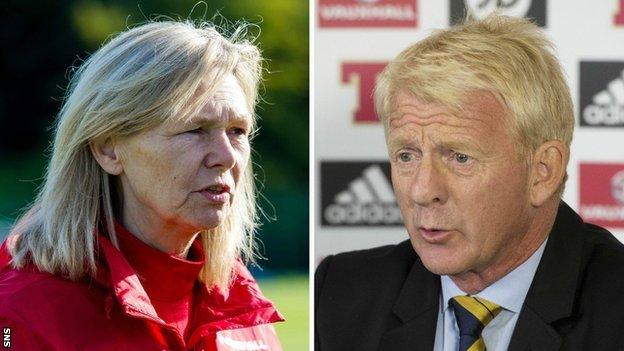
Anna Signeul's side are going where Gordon Strachan's haven't - a major finals
Scotland's women's team have qualified for the finals of their first international tournament, the Euro 2017 finals in the Netherlands.
Their male counterparts have not reached a major finals since the 1998 World Cup.
There are few parallels between the extent of the challenge faced between the men's and women's national teams, but can any lessons be learned?
Continuity can be rewarding
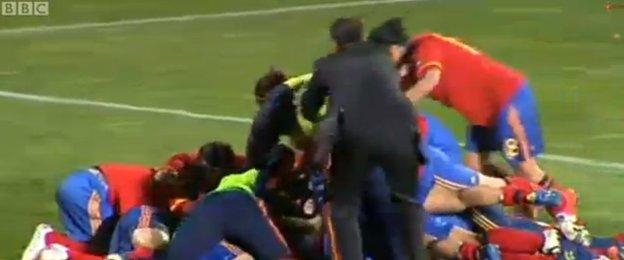
Scotland were close to qualifying before losing to Spain in 2012
Anna Signeul has been managing the Scotland women's team since 2005, a spell that has encompassed three World Cup qualifying campaigns and two European Championship qualifying campaigns.
There were moments of anguish along the way, not least a 3-2 defeat by Spain in extra-time - with the winning goal conceded with the final kick of the ball - that denied Scotland a place at the Euro 2013 finals.
Signeul and the players grew together. She persevered in the role because she believed a young team would grow together and because the margin between success and failure was always so thin.
Under Signeul, there has always been a sense of progress being made, while her role in the development of the women's game across the board has allowed the women's national team to take precedence. Signeul, after all, was adamant that coaches of the club sides should attend a Scotland fixture followed by a coaching conference rather than attend their normal club training session.
Build a squad
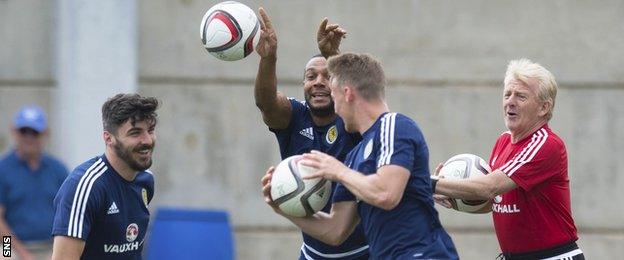
Gordon Strachan (right) has prided himself in establishing an upbeat squad atmosphere
Gordon Strachan has prioritised establishing a strong unity and bond between his players. He encourages high-tempo and fully committed training, as well as selecting players on the basis of how they interact with each other away from the pitch. Signeul has a smaller pool of players from which to select, but that has in itself become an advantage.
Of the squad for the final qualifier against Iceland, the 22 players were drawn from only 12 clubs, with six coming from Glasgow City, four from Hibernian and two from Manchester City.
Most of the players have developed together, so that fostering a spirit among them has involved encouraging bonds and relationships that already exist.
Consistency of selection
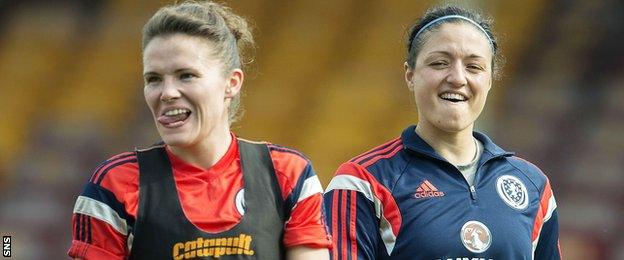
Jo Love and Gemma Fay have 359 caps between them
The core of Signeul's side hardly altered, with goalkeeper Gemma Fay playing all eight qualifying games, along with Joanne Love, Hayley Lauder, Caroline Weir and Jane Ross.
A further three players were involved in seven games - Leanne Crichton, Jennifer Beattie and Lisa Evans - and two more - Leanne Ross and Kirsty Smith were in six. So 10 players were involved in all but two of Scotland's qualifying games.
The consistency was effective at the back, with at least one of Frankie Brown, Ifeoma Dieke, Beattie and Lauder always selected in defence. Twice, all four lined up together, while on three occasions, Dieke and Beattie were the centre-back partnership.
The result was a solidity at the back that contributed to Scotland conceding only seven goals, a total bettered only by Iceland (2), Spain (2), France (0), Sweden (3), Denmark (1), Germany (0), Switzerland (3), England (1), Belgium (5), Norway (2) and Austria (4). The figure is better understood when it is taken into account that Scotland conceded four against the group winners, Iceland, in a rare night when they were outplayed.
Build the team around a goalscorer
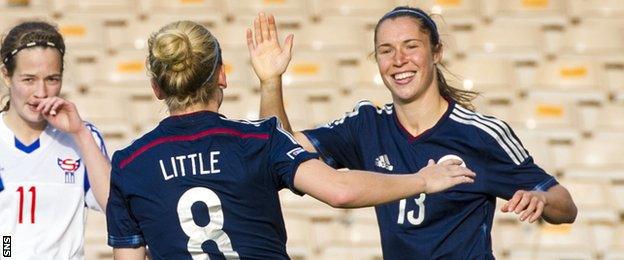
Jane Ross (right) has been the main goalscorer for Scotland Women
Most of the qualifying groups contained two strong sides, which skews the analysis of results and statistics.
But it is clear that Scotland were extremely well served by the goalscoring ability of Jane Ross, who ended the qualifying campaign with 10 goals, making her joint top scorer with Iceland's Harpa Thorsteinsdottir.
She was well supported, though, by team-mates Kim Little - five goals and seven assists - and Lauder - one goal and six assists - to make the most of attacking phases during the qualifying games.
Ross played all but five minutes of the entire campaign and was efficient in front of goal, scoring roughly once every four attempts on goal.
Euro 2017 Qualifying Group One | |||||||
|---|---|---|---|---|---|---|---|
P | W | D | L | F | A | Pts | |
Iceland | 8 | 7 | 0 | 1 | 34 | 2 | 21 |
Scotland | 8 | 7 | 0 | 1 | 30 | 7 | 21 |
Slovenia | 8 | 3 | 0 | 5 | 21 | 19 | 9 |
Belarus | 8 | 3 | 0 | 5 | 10 | 20 | 9 |
Macedonia | 8 | 0 | 0 | 8 | 4 | 51 | 0 |
- Attribution
- Published21 September 2016
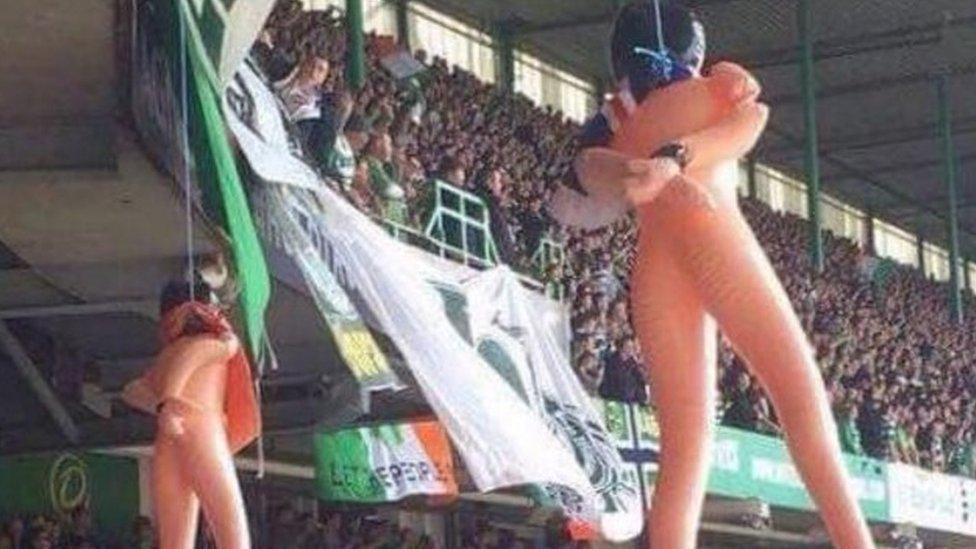
- Published20 September 2016
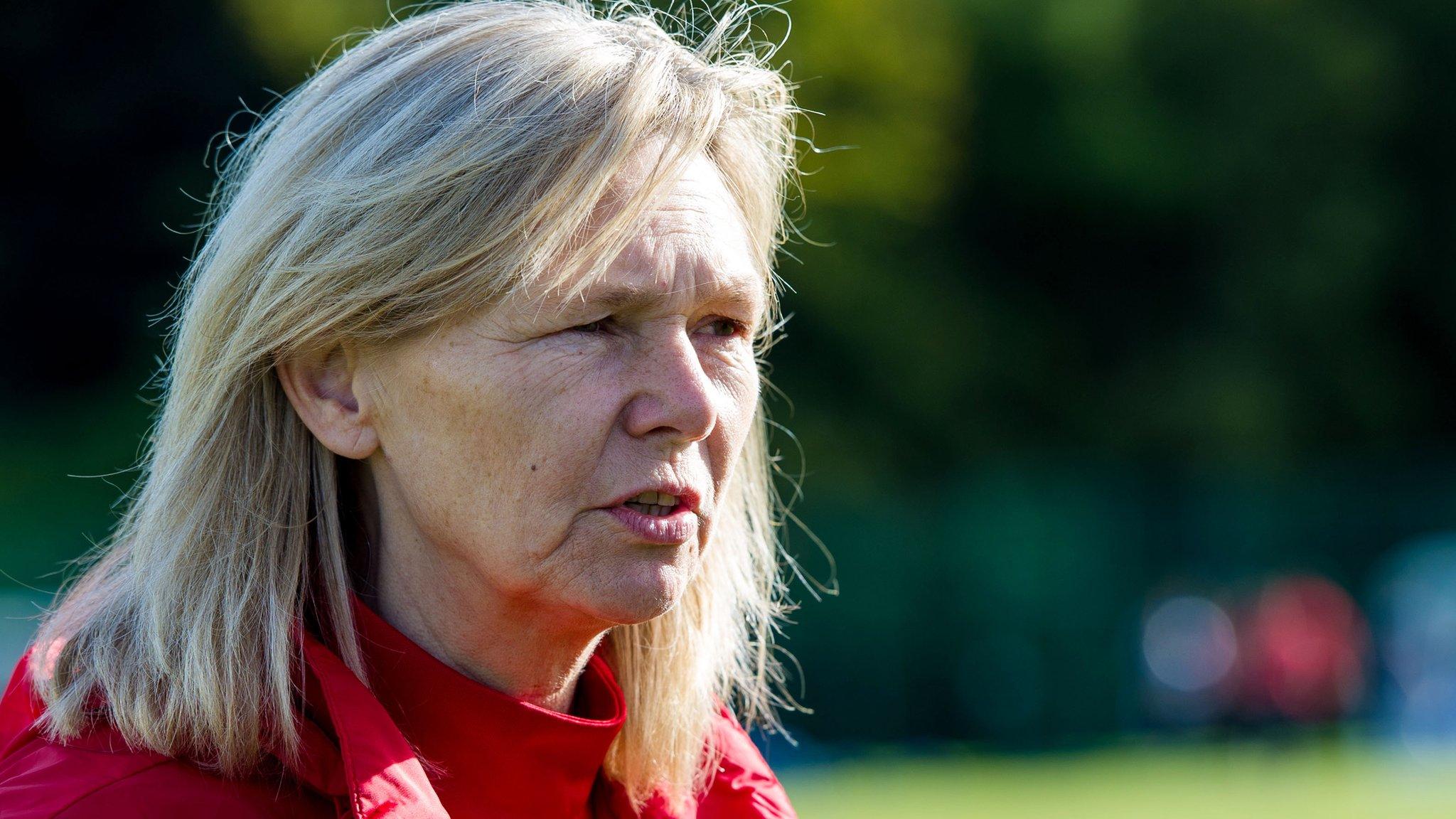
- Published20 September 2016
